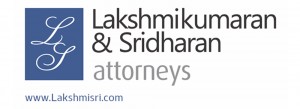The Finance Act, 2021, amended section 16 of the Integrated Goods and Services Tax Act, 2017 (IGST act). This article examines the reasons for the amendments and explores their impact. There are significant ramifications to extending the zero-rating scheme only to supplies for authorised operations to special economic zone (SEZ) developers and units.

Executive partner
Lakshmikumaran & Sridharan
Amended section 16(1)(b) of the IGST act, defines zero-rated supply as supplies to SEZ developers and units of goods and services for authorised operations. Amended section 16(3) provides that registered persons making zero-rated supplies are eligible to claim refunds of unused input tax credits (ITC) on supplies made without paying IGST. If sale proceeds are not realised, the registered person must refund the unused ITCs with interest under section 50 of the Central Goods and Services Tax Act, 2017, within 30 days after the expiry of pre-scribed time limits. Lastly, the newly-inserted sec- tion 16(4) allows the government to specify classes of persons who may export, and classes of goods and services which may be exported, on paying IGST and for claiming refund of IGST so paid.
The words for authorised operations in section 16(1)(b) ensure that only supplies made for authorised operations will now be treated as zero-rated supplies. The significance of authorised operations derives from the Special Economic Zones Act, 2005 (SEZ act). Authorised operations are authorised by the Board of Approval, which allows the developer to conduct operations authorised by the government. The development commissioner has to grant a letter of approval setting out every operation that the SEZ Unit may undertake. An SEZ is deemed a territory outside India customs territory for undertaking authorised operations.
Inserting the words for authorised operations validates the second proviso to rule 89(1) of the Central Goods and Services Tax Rules, 2017, which required an endorsement of receipt of services for authorised operations without any corresponding stipulation in the parent statute. However, the amendment ousts all activities, which are not for authorised operations from being a zero-rated supply, eligible to a refund under the IGST act.
Considerable litigation arose under the erstwhile indirect tax enactments over claims for benefits accorded to authorised operations. These controversies continue and may be sheltered under decisions rendered under the earlier laws. Services provided for authorised operations made to an SEZ were held to be eligible for exemption regardless of whether those services were rendered within geographical boundaries of the SEZ (Jindal Stainless Ltd v UoI; Wardha Power Co Ltd v CCE). Services provided for authorised operations to a SEZ prior to commencement of manufacturing activity in a SEZ were held eligible for refunds of service tax (CST v Zydus Technologies Ltd). Non-inclusion of services in the list of authorised operations was held as a mere procedural lapse for which a refund could not be denied (Société Générale Global Solutions Centre v Commissioner). The amendments to section 16(1)(b) herald a continuation of legacy litigation.

Principal associate
Lakshmikumaran & Sridharan
Hopes that the Finance Act had aligned the SEZ act with the GST regime are dispelled on a reading of section 26 of the SEZ act, which refers only to previous indirect tax enactments. The need to harmonise the two enactments led to the setting up of the Singhal committee with the limited brief of aligning only the Special Economic Zones Rules, 2006 (SEZ rules), and the GST acts. The committee’s recommendations led to state governments having to extend the exemption from state goods and services taxes on goods required for authorised operations by a SEZ developer or unit.
There is no reference to the GST acts in the SEZ act and the debate over whether the exemptions and concessions extended to developers under the SEZ act applies to supplies made under the GST regime is ongoing. On the one hand, the words for “authorised operations” fit into section 16(1)(b) like a piece in a jigsaw puzzle thanks to the combined import of relevant sections of the SEZ Act. On the another, the amended section 16(1)(b) may increase administrative regulation, requiring judicial intervention. There remains a pressing need to align the SEZ act with the GST acts.
This is the first of a two part series article. The second part can be read here.
Raghavan Ramabadran is an executive partner and Krithika Jaganathan is a principal associate at Lakshmikumaran & Sridharan

Lakshmikumaran & Sridharan
B-6/10 Safdarjung Enclave
New Delhi – 110 029
India
Contact details
Tel: +91 11 2619 2243 / +91 11 4129 9900
Email: LSDEL@lakshmisri.com
Website: www.lakshmisri.com






















